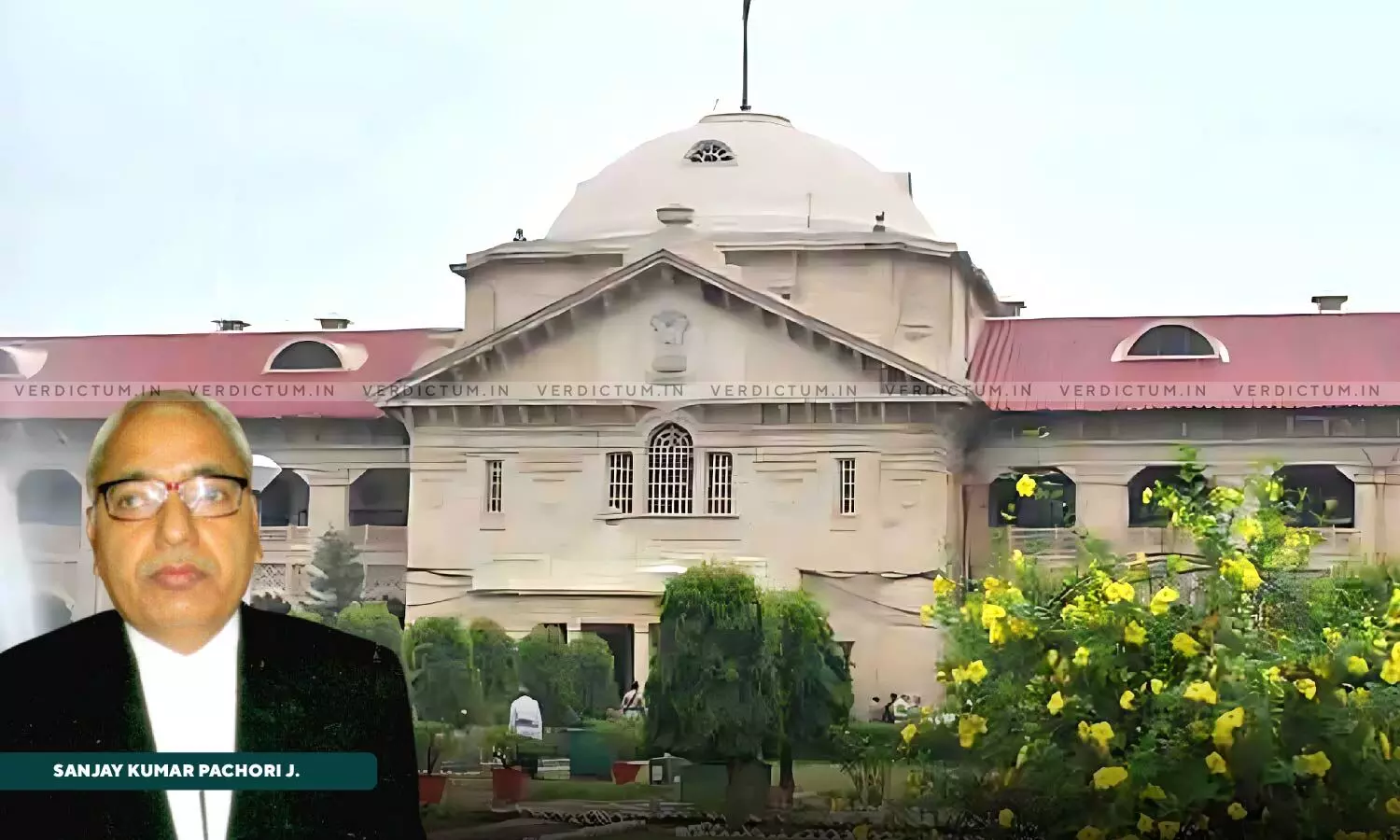
Allahabad High Court: Seized Property Should Be Returned To Rightful Owner When It Is No Longer Required To Bring Trial To Logical Conclusion
 |
|The Allahabad High Court was considering seeking quashing of the order whereby another order dismissing an Application for release of the Indian currency was affirmed.
The Allahabad High Court has held that when seized property is not physically needed to remain with the prosecution to bring the trial or litigation, it has to be returned to the rightful owner.
The Court was considering seeking quashing of the order whereby another order dismissing anApplication for release of the Indian currency was affirmed.
The single-bench of Justice Sanjay Kumar Pachori observed, "It is settled position of law that no person shall be deprived of his or her property without the authority of law, as declared by Article 300A of the of India. Therefore, when the property, so seized by the investigating agency, need not physically remain with the prosecution to bring the trial or litigation, relating to or connected with the seized property, to its logical conclusion, then the seized property shall be released to the rightful owner, or the person who is entitled thereto. As to who is the rightful owner or the person entitled to the possession of the property shall be guided by the proof based on preponderance of the probabilities."
The Applicant was represented by Advocate Atharva Dixit while the Respondent was represented by Government Advocate.
Facts of the Case
The Applicant filed an Application under Section 457 read with Section 451 of Cr.P.C. for release Indian Currency Rs. 1,87,00,000/- which was recovered and seized during investigation of a case registered under Sections 419, 420, 406, 120-B, 411, 467, 468, 471 of I.P.C. The Income Tax Commissioner had filed an Application to release the cash stating that the source and nature of seized cash could not be explained. It was further alleged that the seized amount represented is undisclosed income, the objection of the assesse have to be decided under Section 132 of the Income Tax Act itself and the court has no power to decide the Application in similar proceedings under Section 457 of Cr.P.C., which was rejected subsequently following the rejection of the Criminal Revision against the same as well.
The Senior Counsel submitted that the impugned order was passed without considering the facts and circumstances and position of law. It was further submitted that there is no dispute with regard to the ownership of the Indian currency, which was recovered and seized during the investigation of crime. It was averred that there is no argument so far as the offences of prevention of corruption Act are concerned and there was no reason as well as argument by the State as to why the money was required to be detained when it was is the contention of the prosecution that the investigation was completed. Reliance was placed on Apex Court's decision in the case of Sunderbhai Ambalal Desai Vs. State of Gujarat, 2002.
Reasoning By Court
The Court at the outset mentioned that the custodial order is temporary in nature and in terms of Sub-Section (3) of Section 102 of Cr. P.C., the Police Officer seizing any property on the grounds of suspicion of an offence is required to forthwith report the seizure to the Magistrate having jurisdiction.
"In terms of Section 457 of the Cr.P.C., whenever a property is seized by any police officer and is reported to the Magistrate, the Magistrate is empowered to make such orders as he thinks fit in respect of disposal of the property or the delivery of such property to the person entitled to the possession thereof. In cases where such person cannot be ascertained, the Magistrate can pass orders in respect of the custody and production of such property," the Court observed.
It held that once the physical presence of the property is not needed to bring the trial to a logical conclusion, it can well be released.
"However, it is made clear that the release of the property in favour of the owner or the person found to be entitled to the possession of the properties shall not operate as the declaration of title of that person to the property which shall always be subject to the litigation, if any pending or to be instituted before the Civil Court," the Court clarified.
Cause Title: Waseem Riaz vs. State of U.P. and Another 2025:AHC:51649
Applicant- Advocate Atharva Dixit, Advocate Pranav Tiwary
Respondent- Government Advocate
Click here to read/ download Order